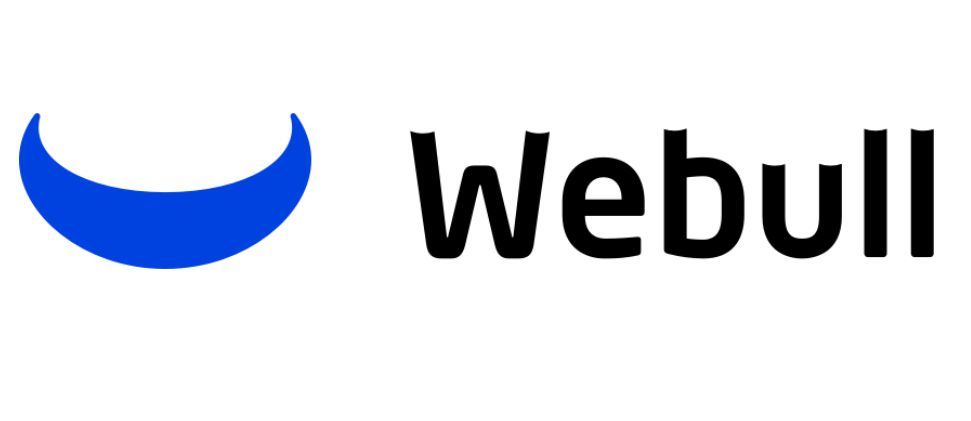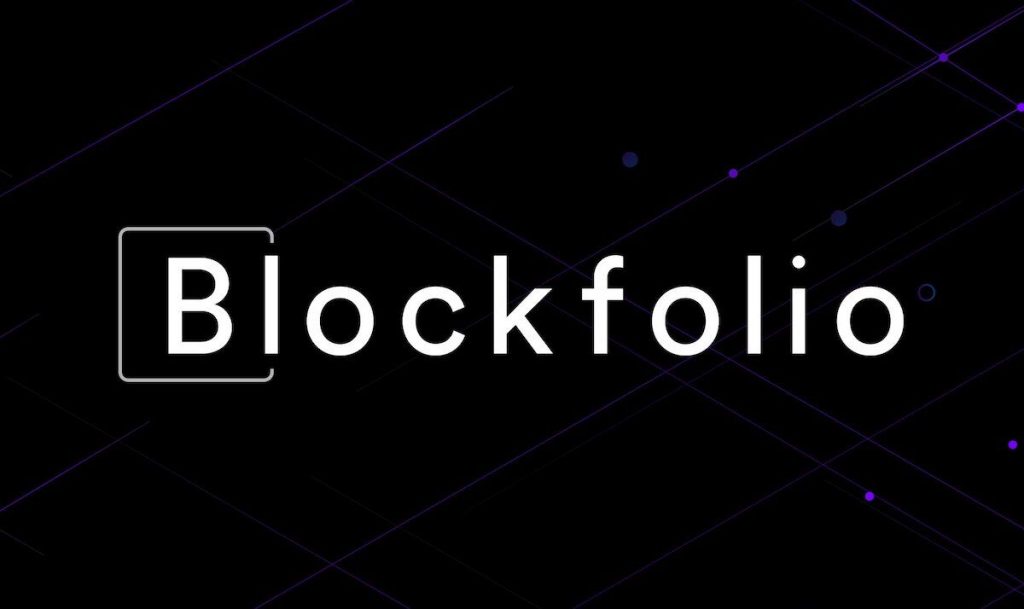20 Best Crypto Apps for 2023: Reviewed


In Brief
It provides users with the same features as a web-based or desktop wallet but in a more convenient and user-friendly way.
These apps offer a variety of features ranging from support for multiple blockchains and dApp browsers to secure wallet solutions and atomic swaps.
If you want to buy and trade cryptocurrencies on your mobile device, you must find the best cryptocurrency app with the lowest fees. But with so many apps available these days, it’s not always simple to find your ideal app.

This article analyzes the best cryptocurrency trading applications for 2023 in order to assist you. It covers all the crucial information you should know before downloading a cryptocurrency app for your mobile devices. We’ll evaluate cryptocurrency-related apps that let you purchase, stake, trade, and earn interest.
What is a crypto app?
A crypto app, also known as a digital currency wallet app or cryptocurrency wallet app, is an application for your smartphone that allows you to store and manage cryptocurrencies. It provides users with the same features as a web-based or desktop wallet but in a more convenient and user-friendly way. Before downloading any crypto app, double-check its security features and make sure you download it from a reputable source.
20 Best Crypto Apps for 2023
1. Binance
Based on trade volume, Binance is one of the biggest cryptocurrency exchanges currently in use. The conditions of Binance are still subject to Hong Kong law because the exchange was once based there. It is not listed on any stock exchange, and its corporate structure is opaque; for instance, it can be challenging to determine precisely where Binance’s offices are.
Binance is not yet accessible in the United States. However, US-based users can use Binance’s partner site, Binance.US. While it uses Binance-licensed matching engine and wallet technologies, its product selection and the number of trading pairs are constrained compared to the original Binance.
The business itself employs 2,800 people, and it serves 15 million customers. Its quarterly trade volume of $180 billion puts it on par with Coinbase; on some trading days, Binance sees higher turnover than Coinbase.
Fees: Binance charges a trading fee of 0.1% for each purchase and sale transaction, regardless of the currency pair.
Pros
- Low non-instant and instant buy fees.
- Extremely large coin selection.
- Numerous extra services.
cons
- Hiccups in account verification.
- Not available in the US.
- Non-transparent corporate structure.
2. Coinbase
Coinbase is a digital currency broker and wallet founded in 2012. It’s one of the most popular exchanges for purchasing, trading, and storing cryptocurrencies. Coinbase has a user base of 20 million and more than $90 billion in assets under custody.
In the US, Coinbase supports 19 digital currencies: bitcoin (BTC), Ethereum (ETH), Litecoin (LTC), Zcash (ZEC), Bitcoin Cash (BCH), Ethereum Classic (ETC), USD Coin, Basic Attention Token (BAT), DAI, Augur’s Reputation token (REPv2), 0x, Ripple’s XRP, Stellar Lumens’ XLM, Chainlink LINK, Cosmos ATOM, Orchid OXT, Tezos XTZ, Filecoin FIL, and Uniswap’s UNI.
Fees: Coinbase charges a 1.49% fee for U.S. transactions from a bank account or Coinbase USD wallet. Debit card transactions cost 3.99%, while credit card purchases come with a hefty 4.99% fee
Pros
- High liquidity and buying limits.
- An easy way for newcomers to purchase bitcoins.
- Instant buy available with credit or debit cards.
cons
- Various fees are associated with trading, withdrawal, and deposit of funds.
- Less available coins than some other exchanges.
3. Gemini
Gemini is a US-based digital asset exchange founded by the Winklevoss twins in 2015. It has offices in New York, Los Angeles, Chicago, Hong Kong, London, and Singapore. The business is registered as a trust with the New York State Department of Financial Services (NYSDFS).
Gemini is available to users from all over the world, including the United States. Gemini also supports 20 cryptocurrencies, including BTC, ETH, LTC, BCH, LINK, XLM, OXT Orchid, and ALGO Algorand.
Fees: Gemini charges a trading fee of 0.35% for all transactions. Rates can be discounted for trades worth more than $500,000.
Pros
- Simple and easy-to-use website interface.
- Very secure platform with cold storage.
- Variety of coins to trade on the exchange.
cons
- High fees for small trades.
- Only 20 coins are available.
4. Kraken
Due to its comparatively simple interface, Kraken is a great exchange for beginning cryptocurrency traders. In comparison to most other exchanges, it enables you to trade a wider variety of cryptocurrencies. However, Kraken is infamous for its poor customer service, and the fees are rather high.
Kraken is accessible in the US, Canada, Japan, and numerous other countries. However, it supports many cryptocurrencies like BTC, ETH, LTC, BCH, and XRP. You can access Kraken through their web interface or mobile apps for iOS and Android. Its user-friendly interface, top-notch security, and proof of reserves make it a good exchange for people who are new to crypto trading.
Fees: Kraken charges a trading fee of 0.26% for taker trades and 0.16% for maker trades, but they are reduced to 0.10% and 0.08%, respectively if you trade more than $50 million in a 30-day period.
Pros
- Support 160+ crypto assets.
- User-friendly interface.
- Advanced features like futures trading and stop-loss orders.
Cons
- High trading fees (up to 0.26%).
- High withdrawal fees (up to $35).
- Poor customer support.
5. BlockFi
BlockFi is a digital asset lending platform launched in 2018. It’s headquartered in New Jersey and operates globally, including in Europe, Asia, and North America. Apart from a crypto exchange, the platform offers a wide range of services, including a cryptocurrency credit card and loans secured by cryptocurrencies. Unfortunately, BlockFi no longer offers interest-bearing crypto accounts to US-based.
BlockFi’s interface is simple, making transactions pretty straightforward. You can set up repeating trades on a daily, weekly, or monthly basis if you wish to automate your investing. This is beneficial if you plan to invest in cryptocurrency using dollar-cost averaging, which is a solid strategy to control risk.
Fees: BlockFi charges a trading fee of between 0.5% and 1%, depending on the amount you are trading.
Pros
- Wide range of services, including crypto credit cards and loans.
- Simple UI.
- No fees to trade cryptocurrencies larger than $20,000.
Cons
- Does not offer interest-bearing crypto accounts to US customers.
- Relatively high trading fees.
6. Abra
Abra was established in 2014 in Silicon Valley, the birthplace of several cutting-edge apps, by Bill Barhydt, a former software engineer for Goldman Sachs and Netscape director. RRE Ventures and Arbor Ventures provided $12 million in Series A funding to Abra in September 2015. However, the true technological breakthrough came in March 2018, when Abra extended support for 20 more cryptocurrencies, including Bitcoin, Ethereum, Bitcoin Cash, and Litecoin. Users can pay for their crypto with a debit card, credit card, wire transfer, or bank transfer.
Fees: Abra charges no trading fee when you use a credit/debit card.
pros
- 200+ new cryptocurrencies worldwide and 100+ new cryptocurrencies in the United States.
- No or relatively low fees apply.
- Equity, cryptocurrency, and ETF investments available.
- Support for 70 fiat currencies.
- User friendly.
Cons
- VISA or Mastercard transaction fees with MoonPay and Simplex are high.
- Account will have restrictions for US-based customers.
7. Coinbase Pro
Coinbase Global Inc. runs well-known bitcoin exchanges Coinbase and Coinbase Pro. Both let you purchase different currencies using fiat currency, such as US dollars or euros. Beginner investors value Coinbase’s simplicity, while seasoned users prefer the additional features offered by Coinbase Pro. Platforms’ cost structures and purchase alternatives vary.
Fees:0% to 0.50% per trade, depending on the amount bought.
Pros
- A low trading fee of 0.5%.
- An intuitive user interface with an advanced layout and customization options.
- An easy fee structure.
- Easy-to-use charts.
Cons
- The only accepted options are bank transfers, debit/credit cards, or SEPA payments.
- No access to margin trading or lending services.
- Only two overlays and indicators for charts
- A learning curve for novices.
8. CoinStats
Crypto portfolio trackers like CoinStats are becoming increasingly important due to the tremendous growth in cryptocurrencies today, as it is getting increasingly difficult for cryptocurrency investors to individually maintain track of every cryptocurrency in their portfolio. Crypto investors may manage their crypto and DeFi portfolios with CoinStats from a single location. To manage your crypto assets, transactions, and trades, you can use the DeFi platform instead of switching between your crypto exchange and wallet.
Fees: CoinStats charges a 0.15% fee on all transactions and trades.
Pros
- Track your crypto portfolio easily.
- 20,000 tokens and cryptocurrencies available.
- Portfolio management.
Cons
- External exchange or wallet required for crypto purchases.
- No advanced features like margin trading available.
9. Mycelium
Mycelium Wallet is a mobile-only, open-source hot wallet that is primarily used to store bitcoin. It is one of the oldest and most popular Bitcoin wallets, it has strong security features, and seasoned bitcoin users can find Mycelium’s complex features useful. Mycelium Bitcoin Wallet allows users to instantly buy, sell and exchange bitcoin with fiat currencies or other cryptocurrencies. It also provides its users with a built-in peer-to-peer trading feature that allows them to securely exchange their bitcoins for other users’ digital assets.
Fees: Mycelium does not charge any transaction fees but charges a small fee for withdrawals.
Pros
- There is a mobile application for the wallet.
- Secure.
- Quick and seamless connection.
- Advanced capabilities.
Cons
- Difficult navigation.
- Not ideal for beginners, with no desktop version.
- Several cryptocurrencies are scarce.
10. Cryptopay
The Financial Conduct Authority has registered the London-based cryptocurrency exchange Cryptopay. It started offering services in 2013, has a unique CPAY token, and is now accessible in 122 nations. Thirty-seven cryptocurrencies can be purchased, exchanged, withdrawn from, and stored using the Cryptopay mobile app and website. The Cryptopay exchange offers withdrawals in fiat currencies and accepts deposits in euros, dollars, and pounds sterling. It issues real and digital Cryptopay Visa cards that can be used to make purchases in-person or online (including using cryptocurrency).
Fees: A fee of 1.5% is charged every time you convert money from one currency to another; a 20 EUR monthly subscription fee is charged for the Cryptopay card.
Pros
- A simple user interface and strong customer service.
- A wide range of cryptocurrencies, including Bitcoin, Ethereum, Litecoin, and Ripple.
- The Cryptopay card is accepted by many merchants, allowing users to make purchases in person or online with their cryptocurrency.
Cons
- No margin trading or other advanced trading features.
- A high subscription fee for the Cryptopay card.
- Available in only 122 countries.
11. Blockchain.com
Peter Smith and Nicolas Cary jointly formed the corporation, which has its headquarters in Luxembourg. They have a team of over 100 people from 22 different countries, and they have experience in both the tech and banking industries.
Since its 2011 debut, the Blockchain wallet has grown significantly in popularity among bitcoin users. The Wallet is only one of several products that Blockchain presently offers. The Blockchain Exchange Platform, Hardware wallet “Lockbox,” Institutional Platform “Markets,” and the Blockchain Developers API Platform are some of their further goods.
Fees: Blockchain.com does not charge any transaction fees, and it is free to use the wallet.
Pros
- Four fiat currencies, 43 trading pairs.
- Exclusive platform and electronic wallets.
- Account program interested in earning extra money.
Cons
- The typical taker commission is 0.17.
- A commission is charged while withdrawing money.
- There is no fiat withdrawal to an e-wallet or bank card.
- No telephone or email help.
12. Exodus
Exodus is a digital currency wallet that you may use to manage all of your bitcoin assets. It is accessible on PC and through mobile apps. Exodus users can store and exchange more than 150 different types of cryptocurrency. Exodus saves your holdings on your computer, like other desktop wallets. This is a lite wallet, so transactions happen quicker because you never need to download the entire blockchain to your computer.
Fees: Spreads often fall between 1% and 3% and depend on the currency you’re trading.
Pros
- A simple user interface makes it ideal for beginners.
- Support for multiple cryptocurrencies.
- Safely store digital currency on the computer without downloading the blockchain.
Cons
- No advanced trading features or margin trading is available.
- Less secure than hardware wallets as it is stored on the user’s computer.
- No telephone or email support is available.
13. eToro
One of the top locations to purchase cryptocurrencies in the US is eToro. The platform currently offers more than 70 digital tokens, and new ones are always being introduced. Popular meme coins like Dogecoin and Shiba Inu are also available, as are large-cap tokens like Bitcoin, BNB, XRP, Cardano, and Solana. The fact that eToro supports projects like Decentraland and The Sandbox will be welcomed by those interested in the metaverse.
eToro is a multi-asset brokerage platform and social trading network. It allows users to trade cryptocurrencies as well as stocks, indices, commodities, and more. It offers both copy trading and manual trading features.
Fees: eToro does not charge any commissions and fees for trading cryptocurrency.
Pros
- Governed by FINRA and the SEC.
- US customers only need a $10 USD minimum deposit to get started. Payments made with e-wallets and debit/credit cards are free.
- Thousands of stocks and ETFs with no commission
- Over 70 cryptocurrencies.
- Across all supported marketplaces, the minimum trade amount is a mere $10.
- Android and iOS mobile applications.
- eToro wallet security for cryptocurrency investing.
Cons
- MT4 and other third-party trading systems are not supported.
- Indicators, commodities, and FX are not available to US clients.
14. Bitstamp
Bitstamp, established in 2011, is one of the most seasoned Bitcoin exchanges on the market. It stands out due to its user-friendly trading platform, sophisticated tools for traders, and cost-effective fee system. Even with increased competition from other platforms, Bitstamp remains a preferred choice amongst investors when it comes to buying or selling cryptocurrencies like Bitcoin or altcoins. Investors can purchase Bitcoin using a credit card, debit card, or a bank account.
Fees: Deposits made by SEPA, ACH, and Faster Payments (UK) are free, but card purchases are subject to a 5% transaction fee. Deposit fees are 0.05% for international wire transfers. Direct crypto deposits, however, are costless.
Pros
- User-friendly trading platform and sophisticated tools for traders.
- Cost-effective fee system based on the payment option.
- Regulated by multiple financial authorities, including the UK’s Financial Conduct Authority (FCA).
- Support for multiple cryptocurrencies, including Bitcoin and altcoins.
- Secure storage with a two-factor authentication system.
Cons
- Limited deposit and withdrawal options; only bank transfers, debit/credit cards, and crypto transfers are available.
- No mobile app for Android or iOS users.
- High fees for card purchases (5%).
- Only EUR is supported as a fiat currency.
- No margin trading is available.
15. Crypto.com
Crypto.com launched the exchange in 2019. With deep liquidity and low fees, users can trade a variety of cryptos from the comfort of this one-stop shop. Powered by CRO—Crypto. com’s native token—holders are able to access exclusive privileges like discounted trading fees when they stake or use CRO tokens for payments.
It can be a little intimidating to navigate through Crypto.com when you first visit, especially if you’re unfamiliar with cryptocurrencies. Simply visiting the Crypto.com exchange will provide you access to alternatives like markets, The Syndicate, Stake and Earn, Trading Area, and Supercharger.
Fees: Crypto.com has consistently offered one of the lowest trading fees in the industry, ranging from 0% to 0.10%. Fees for deposits and withdrawals depend on the currency being used. For example, if you use Bitcoin as your medium of exchange, it is free to deposit, but withdrawal fees may apply depending on the amount being withdrawn.
Pros:
- Low trading fees.
- Deep liquidity.
- Discounts on trading fees when CRO tokens are used for payments or staked.
- Access to a variety of cryptos.
Cons:
- Can be intimidating for first-time visitors unfamiliar with cryptocurrencies.
- Deposit and withdrawal fees may apply depending on the currency type.
- No margin trading is available.
16. Trust Wallet
Trust Wallet is the perfect all-inclusive software wallet solution. It provides users with an incredibly secure platform to send, receive, exchange, and store a wide variety of digital assets, including cryptocurrencies and non-fungible tokens (NFTs). With its support for multiple blockchain networks across iOS, Android, and browser extensions for desktops.
In addition, Trust Wallet features a dApp browser, providing users access to decentralized applications and allowing them to interact directly with the blockchain. In terms of fees, deposits are free in most cases; however, withdrawals may incur network or third-party fees.
Pros:
- Secure wallet solution.
- Support for multiple blockchains and dApp browsers.
- Exchange cryptocurrencies directly in-app.
Cons:
- Deposits may be free, but withdrawals may incur network or third-party fees.
- No margin trading is available.
17. BRD
As a project of the Bread Company, Aaron Voisine and Adam Traidman introduced the BRD wallet app in 2015. The wallet started off with its largest user base in North America and has since grown to operate in more than 150 nations. The wallet was initially intended for iOS users. However, a version for Android has now been released as well. A non-custodial mobile wallet designed for iOS is called the BRD Wallet. The wallet has recently become more well-known, largely due to its ability for anonymous trade and the incorporation of multilayered security mechanisms.
Pros:
- Anonymous trading with multilayered security.
- Available for iOS and Android users.
- Can hold 20+ cryptocurrencies.
Cons:
- No margin trading is available.
18. Atomic Wallet
Introducing Atomic Wallet, the premier platform for cryptocurrency investment. Founded in 2017 by Changelly’s CEO and co-founder Konstantin Gladych, this secure wallet offers unparalleled speed, privacy, and anonymity, making it perfect for both veteran traders and those taking their first steps into the world of crypto assets. With support for more than 500 cryptocurrencies, Atomic Wallet provides users with various features, including Atomic Swaps, its decentralized exchange protocol, which enables near-instant transactions without any deposits or withdrawals.
Fees: No trading fees are associated with Atomic Wallet. However, a minimal fee is applied for withdrawals and deposits.
Pros:
- Secure wallet solution with no trading fees.
- Atomic Swaps for near-instant transactions without any deposits or withdrawals.
- Support for over 500 cryptocurrencies.
Cons:
- Minimal fees may apply for withdrawals and deposits.
- No margin trading is available.
19. Webull

Webull Corporation is a holding company with its main office in New York and a Cayman Islands incorporation. The trading platform offers commission-free and affordable trading of stocks, exchange-traded funds, options, margins, and cryptocurrencies that is accessible through mobile apps and desktop computers. Webull Financial LLC, one of its U.S.-based subsidiaries, provides trading services to clients in the U.S., and it is registered as a securities broker with the U.S. Securities and Exchange Commission and a member of FINRA and SIPC. Additionally, it has authorized subsidiaries in Singapore and Hong Kong that provide trading services.
Fees:
Webull Financial LLC offers commission-free stock and ETF trading, no base charges or inactivity fees, and 0.25% interest on free margin balances.
Pros:
- Commission-free stock and ETF trading.
- No base charges or inactivity fees.
- 0.25% interest on free margin balances.
Cons:
- No margin trading is available.
- No initial coin offerings (ICOs).
20. Blockfolio

Blockfolio is a mobile cryptocurrency tracking and portfolio software that was released in 2014. Users of the app may access the most recent cryptocurrency news and updated prices while on the go. It was one of the earliest tools created for monitoring cryptocurrency investments. Investors who possess various digital assets can track the development of each of their cryptocurrencies more easily thanks to Blockfolio.
Fees: Blockfolio is a free app, however, some features require payment.
pros
- Free
- Numerous coins that may be tracked.
- Responsive client service.
- News and hints about cryptocurrencies.
- Does not call for private information.
Cons
- Your portfolio requires manual data entry.
- Transaction data that has been aggregated may be sold to other parties.
Conclusion
Before deciding to invest or store funds in cryptocurrencies, it is important to consider the 20 best crypto apps for 2023 listed above. These apps offer a variety of features ranging from support for multiple blockchains and dApp browsers to secure wallet solutions and atomic swaps. It is important to research each app carefully before making any investment decisions. As with any investment, it is important to understand the risks involved and only invest funds that you can afford to lose.
Related articles:
- ChatGPT was taught by the world’s poorest people
- Ex-OpenAI employees founded Anthropic, a business that has attracted over $700 million in financing
- eMarketer: The next $100B+ unicorn will be a generative AI startup
Disclaimer
In line with the Trust Project guidelines, please note that the information provided on this page is not intended to be and should not be interpreted as legal, tax, investment, financial, or any other form of advice. It is important to only invest what you can afford to lose and to seek independent financial advice if you have any doubts. For further information, we suggest referring to the terms and conditions as well as the help and support pages provided by the issuer or advertiser. MetaversePost is committed to accurate, unbiased reporting, but market conditions are subject to change without notice.
About The Author
Damir is the team leader, product manager, and editor at Metaverse Post, covering topics such as AI/ML, AGI, LLMs, Metaverse, and Web3-related fields. His articles attract a massive audience of over a million users every month. He appears to be an expert with 10 years of experience in SEO and digital marketing. Damir has been mentioned in Mashable, Wired, Cointelegraph, The New Yorker, Inside.com, Entrepreneur, BeInCrypto, and other publications. He travels between the UAE, Turkey, Russia, and the CIS as a digital nomad. Damir earned a bachelor's degree in physics, which he believes has given him the critical thinking skills needed to be successful in the ever-changing landscape of the internet.
More articles

Damir is the team leader, product manager, and editor at Metaverse Post, covering topics such as AI/ML, AGI, LLMs, Metaverse, and Web3-related fields. His articles attract a massive audience of over a million users every month. He appears to be an expert with 10 years of experience in SEO and digital marketing. Damir has been mentioned in Mashable, Wired, Cointelegraph, The New Yorker, Inside.com, Entrepreneur, BeInCrypto, and other publications. He travels between the UAE, Turkey, Russia, and the CIS as a digital nomad. Damir earned a bachelor's degree in physics, which he believes has given him the critical thinking skills needed to be successful in the ever-changing landscape of the internet.


















































